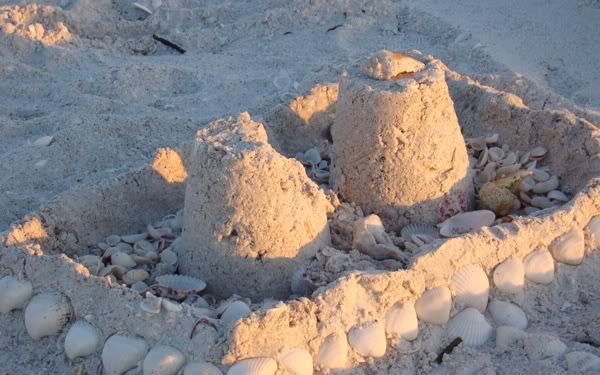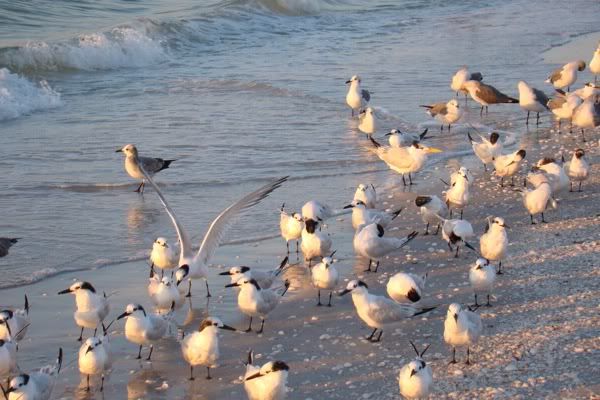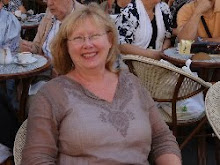A new treasure made from gifts from the sea on Sanibel Island, FL
“What is the shape of my life?”
Before I went into surgery last month, one of my readers suggested I use recovery time to read Anne Morrow Lindbergh’s Gift From the Sea. Since exactly a year ago that same week in October I had been sitting on a beach in Florida, collecting my own seashells, and enduring horrible arm pain during two kayaking trips that made it even clearer I needed surgical intervention, I thought the suggestion was rather auspicious.
When I dug out my used copy I found stuck in the pages the pencil I had used to mark words to live by from my first reading. Hardly anything was underlined, though. Why? It’s a small book. Why hadn’t I finished it? Had I first entered Lindbergh’s quiet world at a time that I had so much noise in my life I couldn’t hear what she was saying? Or did her words just not speak to me? Rather than simply starting where my pencil indicated I had left off, I went back to the beginning.
Lindbergh began the book during a brief sabbatical at the beach in order to think about her pattern of living, i.e, her own balance of life, work, and relationships. At first she assumed her own reflections on the shells – the gifts from the sea – that she found during her daily walks would apply only to her life. However, she learned through conversations that many men and women in all strata of life were occupied with the same question she had asked herself: What is the shape of my life?
Before I went into surgery last month, one of my readers suggested I use recovery time to read Anne Morrow Lindbergh’s Gift From the Sea. Since exactly a year ago that same week in October I had been sitting on a beach in Florida, collecting my own seashells, and enduring horrible arm pain during two kayaking trips that made it even clearer I needed surgical intervention, I thought the suggestion was rather auspicious.
When I dug out my used copy I found stuck in the pages the pencil I had used to mark words to live by from my first reading. Hardly anything was underlined, though. Why? It’s a small book. Why hadn’t I finished it? Had I first entered Lindbergh’s quiet world at a time that I had so much noise in my life I couldn’t hear what she was saying? Or did her words just not speak to me? Rather than simply starting where my pencil indicated I had left off, I went back to the beginning.
Lindbergh began the book during a brief sabbatical at the beach in order to think about her pattern of living, i.e, her own balance of life, work, and relationships. At first she assumed her own reflections on the shells – the gifts from the sea – that she found during her daily walks would apply only to her life. However, she learned through conversations that many men and women in all strata of life were occupied with the same question she had asked herself: What is the shape of my life?
Each chapter focuses on a particular type of shell that becomes a trope for exploring her life as a woman, a wife, a mother. She sets up her argument with the channelled whelk, representing simplicity in life that seems to elude her and most women. “Distraction is, always has been, and probably always will be, inherent in woman’s life.” I snapped to attention. Wasn’t this what I had lamented myself in a less poetic way when I explored decision fatigue?
“She wants perpetually to spill herself away. All her instinct as a woman – the eternal nourisher of children, of men, of society – demands that she give.”
In her chapter on the moon shell Lindbergh offers the German word “Zerrissenheit” – torn-to-pieces-hood – to illustrate how centrifugal force pulls her and other women every which way, causing us to lose our balance or risking shattering us. How do we maintain our individual center in the midst of marriage and other relationships? How do we continue to flower in the “afternoon” of our lives? For her, alone time as well as a creative life were essential. She found that beauty was better able to bloom in empty space. She chose to bring home not every shell she found (her “surfeit of treasures”) but just those she could fit in her pocket.
In her chapter on the moon shell Lindbergh offers the German word “Zerrissenheit” – torn-to-pieces-hood – to illustrate how centrifugal force pulls her and other women every which way, causing us to lose our balance or risking shattering us. How do we maintain our individual center in the midst of marriage and other relationships? How do we continue to flower in the “afternoon” of our lives? For her, alone time as well as a creative life were essential. She found that beauty was better able to bloom in empty space. She chose to bring home not every shell she found (her “surfeit of treasures”) but just those she could fit in her pocket.
“We tend not to choose the unknown which might be a shock or a disappointment or simply a little difficult to cope with. And yet it is the unknown with all its disappointments and surprises that is the most enriching.”
I reached this point in Lindbergh’s little devotional on the same day that my sister got me out of the house to see the independent film The Way, written and directed by Emilio Estevez and starring his father, Martin Sheen. In the story, the recently widowed father takes on the challenge of finishing a pilgrimage to Santiago de Compostela (The Way of St. James) that the son had only begun when dying in an accident one day into his journey (learn about the film and watch an interview with father and son here). Before taking off for Spain they argue about the son’s lack of roots or achievements. The son chides his father on the limits he had placed on his own life by comfortable conventions. “This is the life I chose,” the father says. “You don’t choose a life, Dad. You live one,” his son replies.
I reached this point in Lindbergh’s little devotional on the same day that my sister got me out of the house to see the independent film The Way, written and directed by Emilio Estevez and starring his father, Martin Sheen. In the story, the recently widowed father takes on the challenge of finishing a pilgrimage to Santiago de Compostela (The Way of St. James) that the son had only begun when dying in an accident one day into his journey (learn about the film and watch an interview with father and son here). Before taking off for Spain they argue about the son’s lack of roots or achievements. The son chides his father on the limits he had placed on his own life by comfortable conventions. “This is the life I chose,” the father says. “You don’t choose a life, Dad. You live one,” his son replies.
When the father shoulders his dead son’s backpack and begins the 500-mile trek of forced simplicity along a trail that has carried pilgrims for a thousand years, he embodies Lindbergh’s conclusion. The pilgrimage allows him time to center himself as well as offers the enriching opportunity to reach out to people and situations new and strange. Lindbergh does not imply we must abandon our daily routine to achieve the sense of peace she has after her two-week pilgrimage to the beach. We just need to be conscious of the questions she’s asking – of the value of simplicity and aloneness, the wealth found in a creative spirit, the importance of the here and now. This time Lindbergh’s every word spoke to me.
“When we start at the center of ourselves, we discover something worthwhile extending to the periphery of the circle.”
“When we start at the center of ourselves, we discover something worthwhile extending to the periphery of the circle.”
What allows you to find that center? Is it an activity, a book, a mantra? Please share in the comments box what grounds you when centrifugal forces are stretching you ever thinner.
Do you find yourself too often going in the same direction as the crowd? What sets you to flight?






![Grace [Eventually]: Thoughts on Faith](http://photo.goodreads.com/books/1166504427s/12542.jpg)








